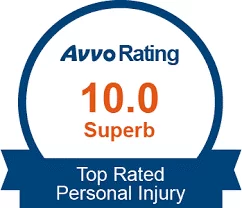As of 2017, Georgia suffered 1,549 fatalities due to automobile accidents. Fifty-six percent (56%) of these deaths were motorists not wearing their seatbelts. The other seventeen percent (17%) involved vehicles and pedestrians.
The 2018 numbers were quite similar. Motor vehicle fatalities accounted for 1,515 preventable deaths. Numbers for 2019 are already at 487 year-to-date.
What can Georgia citizens do to make themselves and their roads safer places to be?
- Do not drive if you are distracted. In other words, don’t drive and talk on your phone. Do not text while driving or search the internet or your playlists.
- Do not drive while impaired. If you have been drinking or are tired, do not drive your vehicle.
- Maintain a safe speed for the road conditions.
- Always wear your seatbelt.
- Be sure to tell others in your car to wear their seat belts too.
What Has Georgia Done to Reduce Auto Fatalities?
Georgia has implemented a Hands-Free Law which went into effect July 1, 2018. This law makes it illegal for the driver of a vehicle to have a phone in their hand, or even touching their body, while they are operating their vehicle.
Only voice text is permitted to be used by the driver. Video is allowed if it is a continuously running dash camera. A driver may also listen to music that is streaming through their vehicle’s sound system. However, this may only be done when streaming does not require the driver touch that electronic device while driving.
Are Georgia Worst Drivers Being Punished for Their Driving Choices?
The Hands-Free Law carries fines and negatively impacts a driver’s license if convicted. The first time a driver is convicted, the fine is $50.00 and one point goes against their license. The second time the fine is $100.00 and two points are levied against their license. At three or more within a year of the first conviction, the fine is $150.00 and three points go against the driver’s license.
Beyond this new law, Georgia has invested in new traffic signals and systems. One of these is the “flashing yellow arrows.” Adopted from Federal Highway Administration (FHWA), the flashing yellow arrows are placed at intersections that are regularly connected and have high accident rates.
The FHWA found these signals reduced left turn crashes by thirty-five percent (35%), helped move traffic through intersections and ease congestion, and reduced idling thus lessening air pollution.
Among the new traffic systems Georgia has implemented are the “diverging diamond interchange,” and the “roundabout.” The diverging diamond interchange disallows left turn movements at confusing, crowded intersections where there are freeway ramps. The diamond shape allows unimpeded movement onto the freeway ramps.
Are the New Traffic Signals and Systems Curtailing Accidents Caused by Georgia Worst Drivers?
The diverging diamond interchange results in fewer collision points, less likelihood of wrong way entry onto ramps, and reduces speed through dangerous freeway ramp intersections. Overall driver confusion is minimized and safety is increased.
Roundabouts are circular shaped intersections. Traffic wishing to enter the circle yields to those vehicles already in the intersection. The round shape naturally causes drivers to reduce their speed which inevitably increases safety.
Beyond signals and systems, Georgia has implemented public campaigns such as Work Zone Safety Awareness Week. This campaign encourages motorists to drive safely through highway work zones. Many believe it is only workers who are hurt or killed in work zone crashes. However, it is usually drivers or their passengers.
Georgia Worst Drivers and Work Zone Fatalities
For example, in 2018, there were 27,235 crashes in Georgia work zones. These crashes included 8,928 injuries. However, in 2018 no workers in Georgia work zones were killed. Only vehicle drivers, passengers, and pedestrians suffered fatalities.
Sixty percent of all work zone crashes are associated with roadway departure and rear end collisions. These are most often related to distracted driving, driving too fast for conditions, and driver impairment.
Passenger vehicles and their riders were not the only work zone related fatalities in 2018. There were also fourteen commercial truck fatalities and thirty pedestrian fatalities.
There are three main rules to stay safe as a motorist in a work zone.
- Pay attention to your surroundings. This includes signs and flag holders.
- Slow down and maintain work zone speed limits.
- Watch for workers.
Some other helpful tips include stay patient, keep up with the traffic flow, and try to minimize distractions. You can also plan ahead. Georgia has traffic updates available by calling 511 or going to the 511 website.
Tips to Keep Safe
Drivers and pedestrians must remember that it is a shared responsibility to keep the roadways safe for all. Pedestrian deaths are up by fifty-four percent (54%) in the past three years. Nearly all of these were at night and outside of a crosswalk.
Nine out of ten pedestrians die when struck at forty (40) mph. One-third of Georgia’s motorists are not yielding to pedestrians, and one-third of Georgia’s pedestrians were found at fault in accidents involving motorists. Therefore, both pedestrians and motorists must:
- Pay attention. Do not be distracted by cell phones, headphones, or texting.
- See and be seen by one another. Walkers should wear reflective clothes.
- Drivers must slow down and be alert. Stop for pedestrians in the crosswalk.
Although Georgia is working towards reducing traffic fatalities in the state, the number of preventable deaths is already on the rise for 2019. Protecting yourself and your loved ones while on the road is a necessary caution you must take. Use best driving practices. Plan ahead, pay attention, make sure to wear your seatbelt, do not driving impaired, maintain proper speed, and see and be seen by pedestrians.
If you or someone you love is involved in a traffic accident in Georgia, speak with an experienced attorney right away to preserve your rights. Let a professional deal with the insurance companies while you focus on healing from the anger and confusion caused by these trying circumstances.


